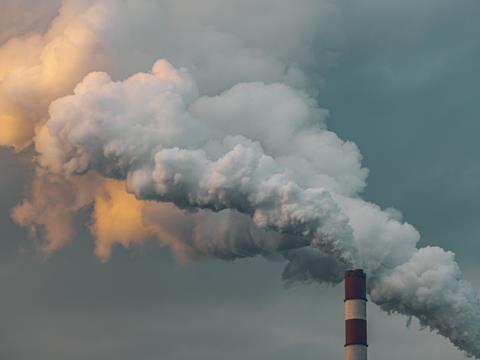
Research from the University of Sheffield has suggested that replacing plastics with alternative materials is ‘likely’ to increase greenhouse gas emissions, with the difference rising to 90% in some cases.
Published in the journal Environmental Science & Technology, the study took a life cycle assessment (LCA) approach to compare the environmental impact of plastic products with non-plastic alternatives in a variety of industrial applications that contribute to global plastic consumption; this includes packaging, construction, automotive, textiles, and consumer durables.
Its results indicate that, in 15 out of 16 applications examined, the plastic product resulted in lower greenhouse gas emissions than its alternative. Some products apparently led to reductions as high as 90% across the product life cycle, while others cut emissions by 10%.
Even when the focus is limited to direct life cycle emissions, plastics reportedly took the advantage in nine out of 14 applications. Compared to alternatives like glass or metal, a range of factors contributed to the reduced environmental impact of plastics, including lower energy intensity in the production process and the weight efficiency of plastics.
Production, transport, and other upstream processes are also said to benefit the most from plastics in 10 out of 16 applications, due to their lower energy intensity and lighter weight.
Complex indirect impacts stem from background systems surrounding plastics, the study explains. Applications like insulation and hybrid vehicle fuel tanks are thought to lead to impacts that overtake the direct emissions of plastics, for instance.
Additionally, plastic packaging is upheld as a means of preserving food, thus preventing spoilage and the greenhouse gases released during decomposition. This function is described as ‘unmeasured’ when compared to the performance of alternative materials.
Optimizing plastic use, extending shelf life, raising recycling rates, and improving waste collection systems are expected to drive down the carbon emissions linked to plastics.
Dr Fanrang Meng from the Department of Chemical and Biological Engineering at Sheffield University worked alongside researchers from the University of Cambridge and the KTH Royal Institute of Technology to conduct the research.
“Not all alternative or recycled products are better for the environment than the products they replace,” explained Dr Meng. “Environmental policymaking needs life cycle assessment guided decision-making to make sure that GHG emissions are not unintentionally increased through a shift to more emission-intensive alternative materials.
“Demand reduction, efficiency optimisation, lifetime extension and reuse/recycling are win–win strategies to reduce emissions effectively. Solely focusing on switching to alternative materials is not.
“Our research highlights the importance of using the life cycle assessment tool to better understand how plastics and their alternatives can affect the environment, but I would also like to stress the importance of not overlooking the impact of plastics on marine ecosystems and potential impacts on human and ecological health.
“We need to consider all of these impacts when choosing which materials to use in products to ensure we are using the right materials for the right purpose and to help us develop a sustainable plastics sector.”
Future modelling could include reusable bioplastics, the researchers note, as well as compostable or biodegradable materials. They were not included in this study due to their small market values and a shortage of reliable data surrounding reuse.
Other research has implied that products derived from crude oil and natural gas may exceed their expected carbon footprints. Data from the Renewable Carbon Initiative indicates that footprints for commodity plastics are around 30% and fossil naphtha’s footprint almost doubles.
Meanwhile, product returns in e-commerce channels are thought to emit up to 24 million metric tonnes of CO2 every year, according to a CleanHub report.
If you liked this story, you might also enjoy:
Report: The ultimate guide to global plastic sustainability regulation
The Brief: Oxo-(bio)degradables: the who, what, and why of breaking down fossil-based plastics
Sustainable Packaging Summit: How Kraft-Heinz uses collaboration to drive innovation
The Brief: Using ocean-bound plastic in packaging – how, why and should we?














No comments yet